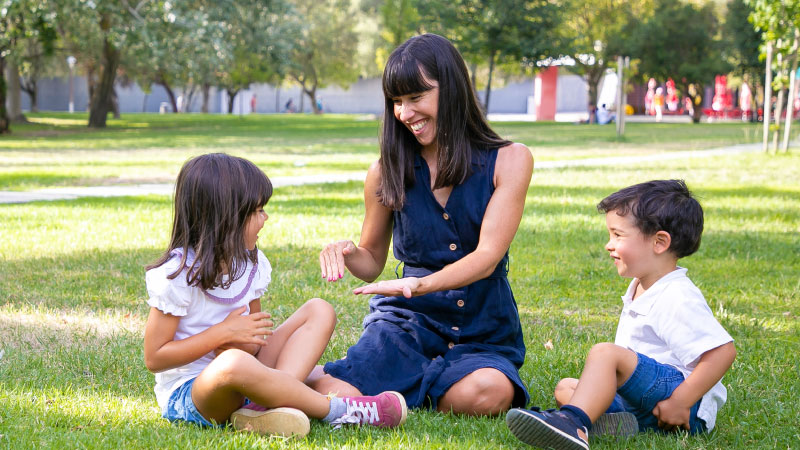The Importance Of Good Manners For Kindergarten Students
Many child experts state that early childhood (2–6 years) is when children gain awareness of “self” and “others”. During this time, kids become aware of others’ needs or rights and the rules made by adults, which clashes with their internal desires, as they can’t distinguish “right” from “wrong”.. With exposure and mentorship, kids learn to understand the connection between their actions and their consequences
Therefore, early childhood, especially the kindergarten years, is the best time to instil good manners in children, and families, friends, and educators play a crucial role in modelling basic civility.
4 Social Manners for Students and How to Teach Them
-
Knowing When To Use The Magic Words
Polite behaviour is a way of life and not something that is just restricted to social gatherings or fine dining restaurants. It is best understood through everyday actions. Adults could lay the foundation of children’s good behaviour by modelling the use of magic words in daily life. Let children know it’s important to say:
- “Hello,” “Good morning,” or “Good evening” when meeting people
- “Please” when asking or requesting something
- “Thank you” when receiving something or expressing gratitude
- “I’m sorry” when they hurt others through words or actions
- “Excuse me” to attract others’ attention.
-
Acting as a Good Guest Or Host
Demonstrate how to be polite and considerate when visiting or receiving friends and relatives. Children should know it’s important to be on time, consider others’ routines, and express their expectations without being stubborn, vague or hurtful, especially when eating and playing with peers. They should learn to share toys when playing and keep them in their original place after the game is over.
Lessons on “table manners” also form a major part of social manners and etiquette for students. Children must know that they should:
- Wash up before and after meals
- Chew with their mouths closed
- Hold and use the cutlery correctly
- Use the napkin
- Avoid talking while swallowing or chewing something.
-
Practising Little Acts Of Kindness
Preschoolers are naturally curious and observant. When they see us behaving nicely with our subordinates or doing things to make others happy, they naturally pick it up and make it a part of their behaviour. We should create opportunities for children to understand and practise kindness. E.g., tending to the sick and elderly, feeding stray animals and birds, holding the door to let others pass, helping other kids with their classwork, etc.
-
Being Respectful Towards Others
Respect is important for ensuring feelings of safety, trust and general wellbeing. It doesn’t come naturally, but children gradually learn it through various actions in different situations. E.g., respecting others’ privacy by knocking on their door or asking permission before entering their room, not making fun of their friends by calling them mean names or using bad words, maintaining eye contact while talking, and using the right words to address people.
It’s important for adults to be consistent, patient, and approachable while instilling good manners in students. We cannot command good manners from kindergarten students; it should come naturally. However, we can tell them why it is important and encourage them to behave nicely to be a better person.
Respect, empathy, kindness and humility are key values that are promoted and practised at Chrysalis Kids, one of the best preschool schools in Bangalore. Their ‘Mind in the Making‘ program is thoughtfully curated to help preschoolers learn how to make connections, cope with emotions, take care of their belongings and use golden words to be polite. Click here to see how Chrysalis Kids can help your child grow better every day!
